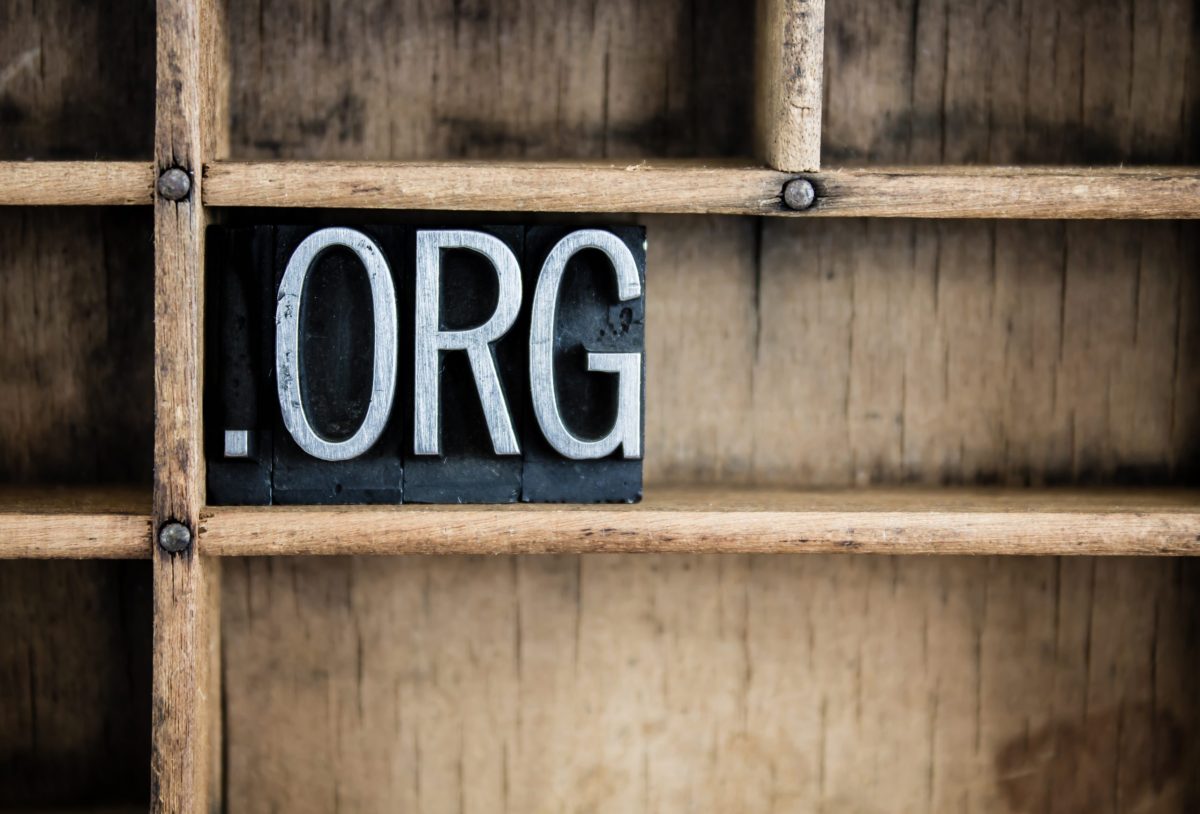
New Nonprofit Finance Fund Survey
07.01.2025 | Linda J. Rosenthal, JD

Back in the waning days of 2019, we alerted you to a troubling development in the tech world: The regulation of the dot.ORG domain-name assignments was being removed from a nonprofit entity and sold to a for-profit group. See Your Dot ORG Domain May Soon Cost More (December 4, 2019).
The secretive and highly irregular back story to this move raised blaring alarms and red flags for the tech and nonprofit worlds once they got wind of what looked like a very bad “done deal.” The outrage picked up steam and by early 2020, there were efforts underway to turn this around. See The Dot.ORG Sale: New Developments (January 9, 2020).
An ad hoc group called Save.ORG created a petition drive, which was supported and publicized by the Electronic Frontier Foundation as well as the National Council of Nonprofits. Suddenly, people started paying attention although this was – at best – a long-shot to succeed.
Sometimes, though, “we the people” win. It happened here, with a big boost by the California Attorney General, Xavier Becerra.
Then, “[i]n about 2003, a smaller California 501(c)(3), the Public Interest Registry (PIR), was created to manage and preserve the special domain registries available to nonprofit and nongovernmental organizations.”
Fast forward to November 2019: “PIR announced its ‘sale’ to a newly created for-profit investment firm” called Ethos Corporation.
The sheer chutzpah of the insiders who formed Ethos Corporation in choosing that name is breathtaking. The word “ethos” is a “Greek word meaning ‘character’ that is used to describe the guiding beliefs or ideals that characterize a community, nation, or ideology.” The word “Ethos forms the root of ethikos (ἠθικός), meaning ‘morality, showing moral character.’”
But this new entity “has no track record or expertise in – well – anything, much less running a domain name registry in the public interest. What it does have, though, are not-well-concealed ties with current and former insiders of PIR, ISOC, and ICAAN.” For additional background on the sordid details, see – for instance – Internet world despairs as non-profit .org sold for $$$$ to private equity firm, price caps axed (November 20, 2019) and the Save.ORG site.
These insiders, when confronted by the opposition, brushed aside objections to the sale, saying that it’s no big deal if the regulatory body for dot.ORG domain names is a nonprofit or a for-profit.
It is, in fact, a big deal, and lots of people in the tech world and in the nonprofit world kicked up a storm. The sale, after all, was announced as a done deal but in fact was not scheduled to be closed or consummated until January 2020.
By April 30, 2020, the ICAAN board faced reality and the tidal wave of opposition and rescinded its “approval” of the late 2019 “sale” of PIR to Ethos Corporation. See Stakeholder Feedback and AG Intervention Halt the Sale of .ORG (May 1, 2020) Jason Schneiderman, The Nonprofit Quarterly and Preserving ICANN’s Independence Through Bold Action – Not Inaction (April 29, 2020) Mitch Stoltz, Senior Staff Attorney, Electronic Frontier Foundation.
And don’t forget that this grass-roots effort continued into the period when all of us have been preoccupied with the global pandemic catastrophe.
